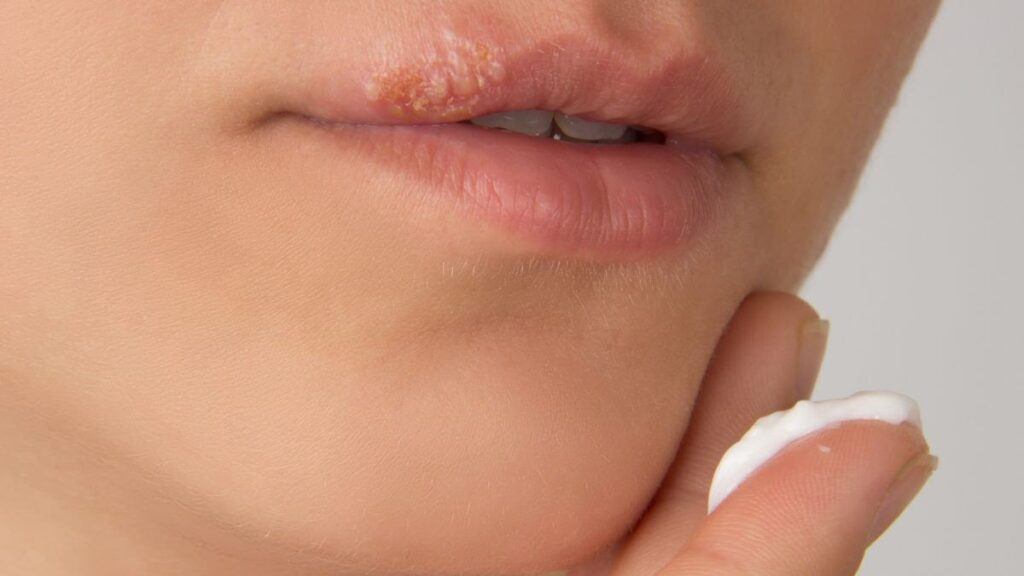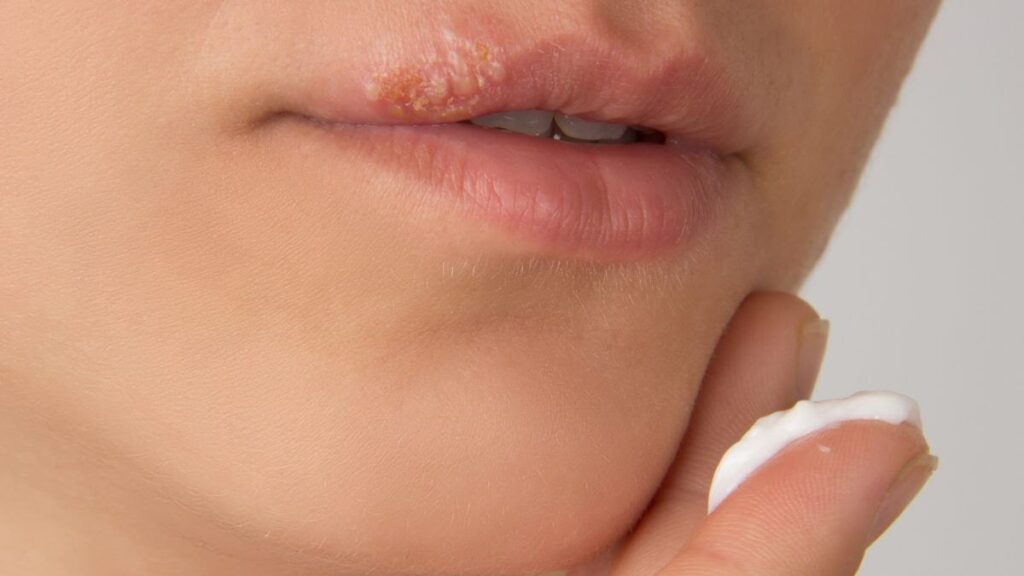Neosporin is a great product for cuts, scrapes, and burns. It contains an antibiotic and a pain reliever. Neosporin works best when used with a bandage. This can help keep the area clean and prevent infection.
Neosporin does not contain any medication that will cure genital herpes. If you have genital herpes, it is important to get treatment from your doctor. If you are unsure about whether or not you have genital herpes, please see your doctor for testing.
Neosporin can be used on herpes sores if it does not cause irritation or burning sensation. It should not be used on open sores or wounds that are infected with bacteria.
Neosporin is an antibiotic ointment that is used to treat skin infections. It contains bacitracin, which is an antibiotic that kills the bacteria that causes infection. Neosporin is often used on small cuts and scratches, but it has also been used to treat genital herpes lesions.
Neosporin can be used on genital herpes sores, but it will not cure the disease or prevent future outbreaks. It may help relieve pain and itching associated with a herpes outbreak, but there are other topical treatments available that may be more effective for this purpose.
Neosporin has also been used as a preventive treatment for recurrent cold sores (herpes simplex). However, there are many other options for preventing cold sores that may be more effective than using neosporin because there is little evidence that it works for this purpose.
Is it OK to put Neosporin on herpes?

Neosporin is a topical antibiotic ointment that is commonly used to treat minor cuts and scrapes. It contains two active ingredients: neomycin and polymyxin B sulfate, according to Drugs.com.
Neosporin is not intended for use on open sores or wounds, and using Neosporin on your genital herpes is not recommended.
Neosporin may be effective in treating some types of infections, but it’s not an effective treatment for herpes simplex virus (HSV). The active ingredients in Neosporin aren’t strong enough to fight the HSV virus. Instead, Neosporin can cause irritation and burning on your skin, which might make the infection worse.
If you have herpes, your doctor can prescribe a medication that will effectively treat the symptoms of your condition and help prevent outbreaks from occurring
In a professional tone:
Neosporin is an antibiotic ointment that helps fight bacteria, including the herpes virus. It is an over-the-counter medication and can be purchased without a prescription. However, it should not be used to treat any type of skin infection unless your doctor has told you specifically to do so.
Neosporin contains two ingredients that make it effective at killing bacteria — neomycin and polymyxin B — but neither of them are effective against viruses like the herpes simplex virus. The only way to get rid of herpes sores is through antiviral medication prescribed by your doctor.
If you have been diagnosed with genital herpes, it’s important that you take the medication exactly as prescribed. That way, the virus won’t continue to replicate itself and cause more outbreaks in the future.
What cream can you put on herpes genital?
The herpes simplex virus (HSV1 or HSV2) is a member of the herpes virus group, which also includes chickenpox, shingles and cold sores.
Herpes is a common infection that affects both men and women. It’s caused by two types of viruses: herpes simplex virus type 1 (HSV-1; oral or “cold sores”) and herpes simplex virus type 2 (HSV-2; genital).
The herpes simplex virus can be transmitted when an infected person sheds (shedding is when someone has a visible sore) the active virus in their saliva or other body fluids. It can also be transmitted when there are no symptoms present.
A herpes infection can usually be treated with antiviral medication, but this isn’t always possible if you have another condition such as HIV or AIDS, which may make it more difficult to control the infection.
Herpes on the genitals is a common sexually transmitted disease (STD). It can cause painful blisters and sores. The blisters usually go away within 2 to 3 weeks, but the sores may take longer to heal.
You can use over-the-counter (OTC) products to treat your herpes symptoms. These include:
Astringents — These products contain chemicals that shrink swollen tissue and help prevent infection. They may be helpful for treating genital herpes lesions, but they won’t cure the disease. The most common astringent is calamine lotion. Calamine lotion also contains zinc oxide, which helps dry up blisters.
Antihistamines — Antihistamines reduce swelling (inflammation) in your skin and mucous membranes, which can ease itching and burning associated with cold sores or genital herpes outbreaks. Antihistamines are available without a prescription in liquid form or tablets that you dissolve under your tongue. You can also buy some antihistamines over the counter in pill form as well as suppositories that melt at body temperature when inserted into the vagina or rectum (used for treating vaginal infections).
Benzocaine — Benzocaine is an anesthetic that temporarily numbs
What can I put on genital herpes wound?

Genital herpes is an incurable disease caused by the herpes simplex virus (HSV). There are two types of herpes simplex viruses: HSV-1, which causes oral herpes, and HSV-2, which causes genital herpes.
In recent years, there have been some promising developments in the treatment of genital herpes. However, there is no cure for this condition and you will have to take antiviral medication for the rest of your life.
The purpose of this article is to provide you with information about what can I put on genital herpes wound?
The first thing that you need to do is make sure that you are not going to spread the virus further. This can be done by avoiding sexual contact, especially with your partner.
You should also wash your hands and genitals carefully after touching the sores or any other part of your body where sores may occur.
If you have genital herpes, you can use over-the-counter ointments such as Calamine lotion, hydrocortisone cream or calendula cream to reduce itching.
A topical steroid cream can also be used to relieve the itching and inflammation associated with a genital herpes outbreak.
Other medications include:
Acyclovir (Zovirax) – if an outbreak occurs, this is taken orally as a tablet once a day for five days or as a cream or gel twice daily for seven days. It does not cure genital herpes but does reduce the severity and duration of symptoms; it also reduces shedding of the virus from skin cells in people who have frequent outbreaks (milder symptoms). It works best when started at the first sign of tingling or itching. Acyclovir is not recommended for pregnant women or breastfeeding mothers because it can cause birth defects or harm their unborn child’s eyesight;
Is antiseptic cream good for herpes?
The answer depends on what type of infection you have. Antiseptic cream is widely regarded as a useful treatment for minor skin infections, such as cuts and scratches. It is less effective in the treatment of more serious infections, such as cellulitis (inflammation of the deep layers of skin) or impetigo (a bacterial skin infection).
Antiseptic creams contain chemicals that kill bacteria on contact. These include:
Benzalkonium chloride – an antiseptic that can be used on all types of skin, including broken skin or damaged tissue
Chlorhexidine gluconate – a powerful antiseptic that can be used on broken skin or damaged tissue
Iodine tincture – a powerful antiseptic that can be used on broken skin or damaged tissue
Antiseptic cream is a topical treatment that can be used to treat and prevent skin infections. The active ingredient in antiseptic creams is usually a combination of coal tar and salicylic acid, although some also contain other ingredients such as camphor or menthol.
Is Antiseptic Cream Good for Herpes?
Antiseptic cream is not recommended for treating herpes symptoms, but it can be used to prevent them from spreading to other areas of your body. For example, if you have a cold sore on your lip, you can apply antiseptic cream to the surrounding area to prevent it from spreading down into your mouth.
Some people with genital herpes prefer to use an over-the-counter (OTC) product that contains pramoxine hydrochloride (pramoxine) instead of an antiviral medication like acyclovir cream. This may be because they don’t want to take pills every day or because they experience side effects from acyclovir cream. While there isn’t enough research available yet to determine whether this approach is effective, it’s worth trying if you have severe outbreaks of genital herpes that don’t respond well to other treatments
Is vaseline good for herpes?

Vaseline is a petroleum jelly that is used to soothe the skin and help wounds heal. It can be used on your herpes blisters, but it may not make much of a difference.
Vaseline is better for dry areas of your body like your lips or elbows. It will keep those areas from getting chapped.
If you have herpes blisters, using vaseline may help prevent them from getting worse, but it won’t cure them or make them go away faster.
If you’re going to use vaseline on your herpes blisters, don’t put it directly on the blisters; instead, rub some onto the surrounding area of skin. If you want to apply it inside your mouth to soothe cold sores that are causing pain or discomfort, use only a small amount because too much can cause choking if accidentally swallowed.
Vaseline is a petroleum jelly that is often used as a lubricant on skin. It is also used to soothe burns and sores, as well as to prevent diaper rash.
Vaseline contains mineral oil, paraffin wax, and lanolin. It is also made with fragrance oils.
The main benefit of Vaseline is that it moisturizes dry skin and protects it from irritation. This can be helpful if you have herpes on your lips or around your mouth, for example. The downside of using Vaseline for herpes is that it may not provide enough protection from the sun’s rays, which can lead to sunburned sores or make existing ones worse.
While you probably don’t need to worry about using Vaseline for herpes during cold weather when your lips will naturally be protected from chapped skin by wearing gloves and scarves, using Vaseline during warm weather can cause sunburned sores on your face and neck—or worse yet—developing an allergy to the product itself!
